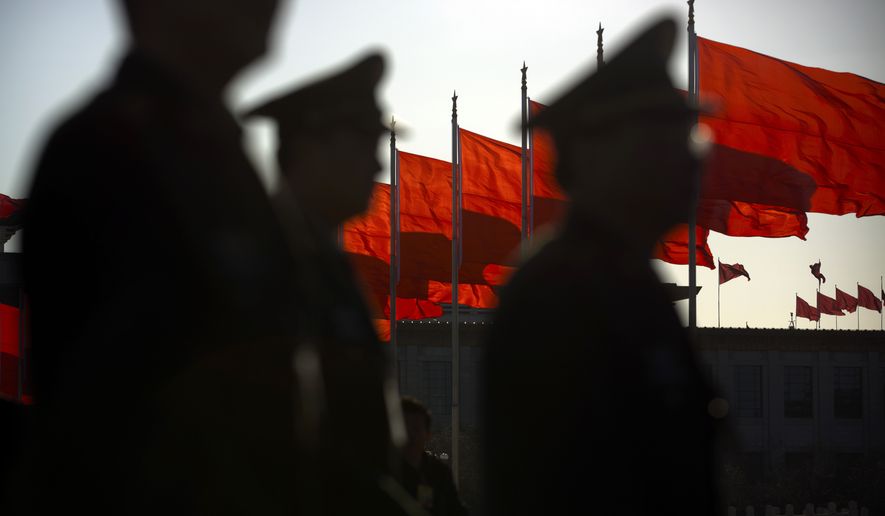U.S. military officials are trying to pacify a furious China in the wake of Washington’s plan to deploy a battery of advanced missile defense systems in South Korea, insisting to angry military leaders in Beijing that the weapons would be solely targeting ballistic missile threats from North Korea and not undercut China’s own military deterrent.
Beijing has denounced the planned deployment of the Terminal High Altitude Area Defense weapon in South Korea and has already retaliated in ways large and small, including blocking a U.N. Security Council resolution condemning a recent North Korean missile test and canceling appearances by South Korean “K-Pop” music stars.
“If THAAD is deployed, it will sour [South Korea’s] relations with China and Russia, trigger an arms race and damage trade,” the state-controlled China Daily newspaper wrote in an editorial Thursday. “It will make it difficult for the country to seek cooperation from China and Russia in denuclearizing the peninsula.”
Army Gen. Vincent Brooks, commander of U.S. Forces-Korea, met in Seoul on Thursday with Vice Adm. James D. Syring, U.S. Missile Defense Agency chief, to discuss the deployment. THAAD is expected to arrive in South Korea by next year.
Talking with reporters in South Korea, Adm. Syring stressed that the THAAD-based missile defense system is integral to curbing North Korea’s nuclear ambitions but would not undermine China’s ballistic missile defense efforts or pose a legitimate threat to Beijing in the region.
“We don’t defend against China as a threat,” he said during a press conference in Seoul shortly after meeting with Gen. Brooks.
But such comments have done little to appease Beijing, which says the weapons system is a Washington scheme to increase the U.S. military presence in the Pacific, posing a direct threat to China’s military interests in the region.
Chinese defense officials have threatened to break off cooperation with U.S.-led efforts to curb the North’s nuclear and ballistic missile programs. Chinese diplomats blocked efforts by the U.N. Security Council condemning North Korea’s most recent missile tests, refusing to approve a council statement on the tests without language opposing the planned THAAD deployments to South Korea.
Beijing also has argued that the THAAD deployment in South Korea will prompt an acceleration of North Korea’s nuclear weapons development program. U.S. Ambassador to the U.N. Samantha Power and senior White House officials have rejected that assertion.
Even North Korea has taken notice of the growing international pressure on South Korean President Park Geun-hye for her decision last month to accept the THAAD system, saying Seoul has had to “dodge mounting criticism” at home and abroad.
Ms. Park’s government has been “driven into a tight corner by the strong criticism and protest against the THAAD deployment from not only the South Korean public, but also from all Koreans and international society,” according to a statement by a spokesman for the North’s Committee for the Peaceful Reunification of the Country given to China’s official Xinhua News Agency.
During the Seoul meeting Thursday, the senior U.S. military leaders discussed the THAAD deployment as the first step in developing a “layered missile defense system” in South Korea to deter the “serious nuclear and missile threat North Korea poses,” according a command statement.
“North Korea’s latest missile launches, in violation of multiple [United Nations] resolutions that ban North Korea from any activity using ballistic missile technology,” are clear examples of the need for the THAAD system in the region, command officials say.
A recent test shot of North Korea’s latest long-range ballistic missile system landed 150 miles west of Akita prefecture in northern Japan, Japanese Defense Minister Gen Nakatani said last week.
The missile shot was the closest Pyongyang’s rapidly developing nuclear weapons program has come to reaching the Japanese coastline, Mr. Nakatani told The Wall Street Journal.
• Carlo Muñoz can be reached at cmunoz@washingtontimes.com.




Please read our comment policy before commenting.